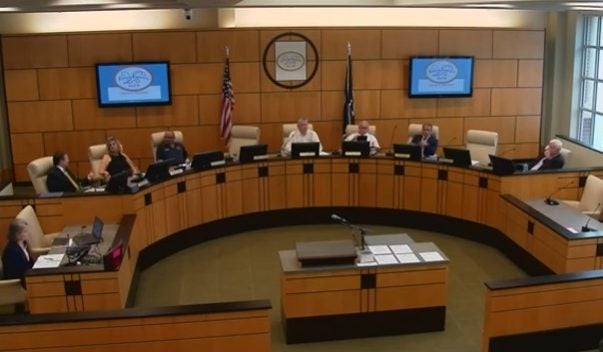Council looks to change Farmville town charter
Published 7:27 am Thursday, September 15, 2022
|
Getting your Trinity Audio player ready...
|
FARMVILLE – The Farmville town charter hasn’t been updated since 1956. It still references jobs that no longer exist and is very specific when it comes to both the powers of the mayor and size of the town. To fix that, the Farmville council wants to make a few changes. And they brought in a law firm from Richmond to help show how.
Earlier this year, the council hired the law firm Hefty, Wiley and Gore and asked for their help in adjusting the charter. Over the last few months, the group went through the document, researched the Code of Virginia and determined what was obsolete and could be removed and what needed to be added. One of the group’s partners, attorney Jeff Gore, made recommendations to the council during their Wednesday, Sept. 14 meeting.
What changes were recommended for Farmville?
The town’s current charter says its boundaries “shall contain 846 acres more or less,” but that can cause problems, Gore cautioned.
“If you ever change your boundaries for any reason, a voluntary change or annexation, then suddenly your charter doesn’t reflect your boundaries,” Gore said.
Rather than state a specific number, Gore’s recommendation is to change it to say “the boundaries of the town shall remain as now established unless changed in accordance with applicable law.”
That’s one issue. There are also powers given to the town council in the current document that simply aren’t needed. For example, the council has no need to appoint a town sergeant, as Farmville has a professional police force. The circuit court doesn’t appoint a justice of the peace anymore, but that’s what the charter calls for. Gore pointed out that 15 of the current 62 sections in the charter involve duties of the town treasurer. That position doesn’t exist anymore. Instead, Farmville has a finance director who reports to the town manager.
Gore and his firm propose cleaning all of that up by eliminating the Circuit Court’s power to appoint justices of the peace and removing the language about a town sergeant and treasurer.
Role of the mayor
And then there’s the mayor’s role. In the current charter, the mayor is identified as the chief executive officer of the town. It gives him “supervisory control of the police,” and the ability to “appoint special police officers when necessary.”
The charter also says the mayor “shall have authority to issue his warrant for the arrest of any person or persons for violation of any of the ordinances or resolutions of the town.” There are several other powers spelled out in more than a page of text, responsibilities that over the last 60 years have been assigned to other people. However in that time, the wording of the charter was just never changed to match the reality.
“In old charters or in old municipal codes, (the) mayor essentially does the administrative role,” Gore said. “(This change) just updates it to current practice and current law.”
Specifically, the revised version recommended by Gore and his firm spells out the mayor’s job in a paragraph.
“The mayor shall preside over the meetings of the council, shall have the same right to speak therein as other members of council,” the recommended text states. “The mayor shall not have a vote as other members of council unless there is a tie but shall have power to veto.”
The recommended version says the mayor has the authority to appoint council committees and will be recognized as head of the town government for “ceremonial purposes, the purpose of military law and the service of civil process.”
Meanwhile, the recommended changes also state that “except for the purpose of conducting administrative inquiries and hearings by the council or a committee thereof, the mayor and members of the council shall deal with the administrative service solely through the town manager.” Also, “neither the council nor any member thereof shall give orders to any subordinates of the town manager, either publicly or privately.”
So what happens next?
In order to move forward with the changes, a couple things need to happen. First, a public hearing on the subject needs to take place. Mayor David Whitus indicated during Wednesday’s meeting that could take place in October.
After a public hearing, the council will need to take a vote on these recommendations, to have a finished list of what they want altered. After that, it’s up to the Assembly. Any changes in a town’s charter requires a two-thirds majority vote of approval by the Assembly.
If the Assembly signs off on the changes, the new charter would become effective on July 1, 2023.
Farmville Town Manager Scott Davis had asked if it was possible for the changes to take effect immediately, Gore said, but that’s not likely.
“That can be done, there’s a process for that,” Gore said. “(But) it would require it to be framed as emergency legislation.”
The town would have to convince Assembly members that changing the charter is an emergency, he said. That’s not easy to do.






